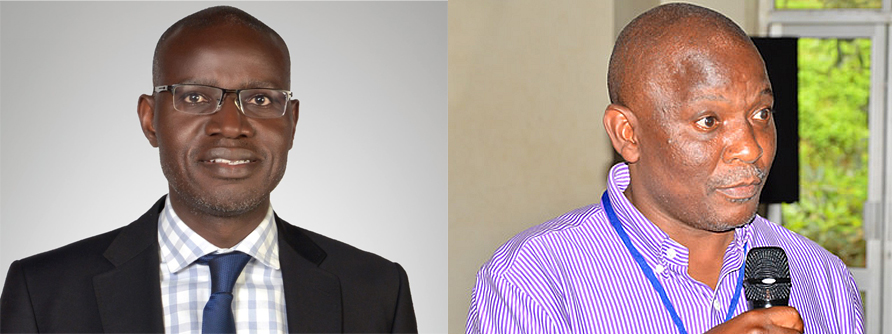
The University of California San Francisco’s work to advance health worldwide relies on collaborations with scientists around the world. The Institute for Global health Sciences is officially recognizing a few of the most central collaborators with whom our faculty work. These are a few of their stories.
Each year, nearly a quarter of the roughly 10 million global tuberculosis (TB) patients are overlooked. The failure to quickly diagnose and treat TB leads to worse outcomes for patients and continued transmission of the disease. This is the problem Adithya Cattamanchi, MD, MAS, a professor of medicine and epidemiology at UCSF, wants to solve.
Cattamanchi traveled to Uganda as a pulmonary fellow where he spent time on the medicine wards at Mulago National Referral Hospital in addition to working on research studies. There he met Fred Semitala, who was then a resident physician. The two developed a friendship which has resulted in professional collaboration in implementation science training and HIV/TB research.
Cattamanchi’s work was originally focused on TB immunology, but after seeing in his fellowship the challenges of diagnosing and treating patients in Uganda and other low- and middle-income countries, he began researching methods and strategies that can facilitate the uptake of the latest evidence-based practice into regular use – called implementation science.
Semitala co-leads an implementation science effort, partly supported by UCSF, at Makerere University, a leading East African medical school where training in this area of central challenge in healthcare was previously unavailable. He is also the Uganda PI for two studies Cattamanchi leads on TB diagnosis and prevention. He has also collaborated with UCSF researchers including Christina Yoon, Gabe Chamie, Vivek Jain and Diane Havlir.
On a subsequent trip to Uganda, when Cattamanchi was working on an NIH mentored patient-oriented research career development award (or K23), he met Achilles Katamba. Katamba was focused on improving the delivery of TB services, so there was a clear synergy.
The two worked together to collect some of the first data on the quality of TB care in Uganda and turned this into an R21 grant focused on understanding and addressing barriers to TB diagnosis at community health centers. They later helped form the Uganda TB Implementation Research Consortium, which now hosts 5 NIH R01 grants and several foundation grants focused on improving difference aspects of TB care.
“The global health work I’m involved with is focused on developing simpler and more accurate ways to diagnose tuberculosis and on improving uptake of evidence-based practices for TB prevention, diagnosis and treatment,” said Cattamanchi. “Fred and Achilles are key partners in this work.”